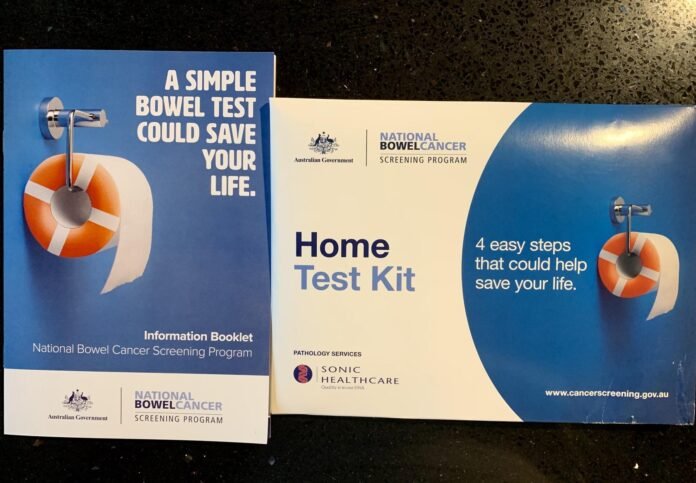Understanding Bowel Cancer
Bowel cancer, also known as colorectal cancer, is a type of cancer that starts in the colon or rectum, which are parts of the digestive system. Bowel cancer can develop slowly over time and often starts with noncancerous polyps that can become cancerous if not removed. If left untreated, bowel cancer can spread to other parts of the body, making it more difficult to treat.
Statistics on Bowel Cancer Prevalence
Bowel cancer is the fourth most commonly diagnosed cancer in Australia, with adenocarcinomas being the most common type Cancer Council Australia. In the UK, bowel cancer is the fourth most common cancer and the second leading cause of cancer deaths NHS. According to Mayo Clinic, more than 104,000 new cases of colon cancer are diagnosed each year in the United States alone.
Causes of Bowel Cancer
The exact causes of bowel cancer are not yet fully understood, but certain risk factors can increase the chances of developing the disease. These risk factors include:
- Age: The risk of developing bowel cancer increases with age, with most cases occurring in people over the age of 50.
- Family history: People with a family history of bowel cancer are at a higher risk of developing the disease.
- Inflammatory bowel disease (IBD): People with IBD, such as Crohn’s disease or ulcerative colitis, have an increased risk of developing bowel cancer.
- Lifestyle factors: Poor diet, lack of exercise, obesity, smoking, and excessive alcohol consumption can increase the risk of developing bowel cancer.
Symptoms of Bowel Cancer
Bowel cancer can cause a range of symptoms, some of which can be mistaken for other conditions, such as hemorrhoids or irritable bowel syndrome. Symptoms of bowel cancer can include:
- Changes in bowel habits, such as diarrhea or constipation
- Blood in the stool or rectal bleeding
- Abdominal pain or discomfort
- Unexplained weight loss
- Fatigue or weakness
- Anemia
It is important to note that not everyone with bowel cancer will experience symptoms, which is why regular screening is crucial for early detection.
Prevention and Early Detection
Bowel cancer can often be prevented or detected early through regular screening tests and lifestyle changes. Here are some ways to reduce the risk of developing bowel cancer:
Screening Tests for Bowel Cancer
Screening tests can detect bowel cancer at an early stage, before any symptoms appear. The two main screening tests for bowel cancer are:
- Fecal occult blood test (FOBT): This test involves collecting a small stool sample and sending it to a laboratory to check for any blood in the stool.
- Colonoscopy: This test involves inserting a flexible tube with a camera into the rectum to examine the colon and remove any polyps or tissue samples for testing.
Screening tests are recommended for people aged 50 to 74 in Australia and the UK, and for people aged 45 to 75 in the US. People with a family history of bowel cancer or certain medical conditions may need to start screening earlier or have more frequent screenings.
Lifestyle Changes to Prevent Bowel Cancer
Making certain lifestyle changes can help reduce the risk of developing bowel cancer. Here are some tips:
- Eat a healthy diet: A diet high in fiber, fruits, and vegetables and low in red and processed meats can help reduce the risk of bowel cancer.
- Exercise regularly: Regular physical activity can help maintain a healthy weight and reduce the risk of bowel cancer.
- Quit smoking: Smoking increases the risk of bowel cancer, as well as many other types of cancer and health problems.
- Limit alcohol intake: Drinking alcohol in moderation can help reduce the risk of bowel cancer, as well as other health problems.
Importance of Early Detection
Early detection is crucial for successful treatment of bowel cancer. The earlier bowel cancer is detected, the more likely it is to be treated successfully and the less likely it is to spread to other parts of the body. If you experience any symptoms of bowel cancer or have a family history of the disease, talk to your doctor about screening tests and early detection options.

Treatment Options
There are several treatment options available for bowel cancer, depending on the stage and severity of the disease. Treatment may involve a combination of surgery, radiotherapy, chemotherapy, and biological treatments.
Surgery
Surgery is often the main treatment for bowel cancer. The aim of surgery is to remove the cancerous tissue and any nearby lymph nodes. The type of surgery needed depends on the location and stage of the cancer. In some cases, only a small piece of the colon wall may need to be removed, while in other cases, an entire section of the colon may need to be removed.
Radiotherapy
Radiotherapy uses high-energy radiation to target and kill cancer cells. It may be used before surgery to shrink rectal cancers or to control symptoms in advanced cases. Radiotherapy can also be used after surgery to kill any remaining cancer cells.
Chemotherapy
Chemotherapy uses drugs to kill cancer cells. It may be used before or after surgery, or for palliative care in advanced cases. Chemotherapy is often used in combination with other treatments, such as surgery or radiotherapy. Side effects of chemotherapy can include fatigue, nausea, and hair loss.
Biological Treatments
Biological treatments, also known as targeted therapies, are drugs that target specific proteins on the surface of cancer cells. They are often used in combination with chemotherapy to improve treatment outcomes. Some biological treatments used to treat bowel cancer include cetuximab and bevacizumab.
It is important to discuss the potential benefits and risks of each treatment option with your doctor to determine the best course of action for you.
Coping with Bowel Cancer
Being diagnosed with bowel cancer can be a life-changing experience, and it is natural to feel a range of emotions. Here are some tips for coping with bowel cancer:
Seek Support
Talking to friends and family about your diagnosis can be helpful, but you may also want to seek support from a counselor, support group, or other cancer survivors. Support groups can provide a safe space to share your experiences and connect with others who understand what you are going through.
Manage Symptoms and Side Effects
Bowel cancer and its treatment can cause a range of symptoms and side effects, such as fatigue, nausea, and pain. It is important to talk to your doctor about how to manage these symptoms and side effects. There may be medications or other treatments that can help.
Make Lifestyle Changes
Making certain lifestyle changes can help you feel better and cope with the challenges of bowel cancer. These may include:
- Eating a healthy diet: A diet high in fiber, fruits, and vegetables and low in red and processed meats can help reduce the risk of bowel cancer and improve overall health.
- Exercising regularly: Regular physical activity can help maintain a healthy weight, reduce stress, and improve overall health.
- Getting enough sleep: Restful sleep is important for overall health and can help reduce fatigue and improve mood.
- Reducing stress: Stress can make it difficult to cope with cancer and its treatment. Finding ways to reduce stress, such as meditation, yoga, or talking to a therapist, can be helpful.
Take Care of Your Emotional Health
Dealing with cancer can be emotionally challenging, and it is important to take care of your mental health as well as your physical health. Some ways to take care of your emotional health include:
- Talking to a therapist or counselor: A mental health professional can help you work through your emotions and provide coping strategies.
- Practicing mindfulness: Mindfulness techniques, such as meditation or deep breathing, can help reduce stress and anxiety.
- Finding joy in life: Engaging in activities that bring you joy, such as hobbies or spending time with loved ones, can help improve your mood and outlook on life.
Stay Positive
Coping with cancer can be difficult, but staying positive can help you maintain hope and a sense of control. Some ways to stay positive include:
- Focusing on the present moment: Try not to worry about the future or dwell on the past. Instead, focus on the present moment and what you can do to improve your situation.
- Setting small goals: Setting small, achievable goals can help you feel a sense of accomplishment and progress.
- Finding humor: Laughing and finding humor in life can help you stay positive and improve your outlook.
Bowel Cancer Research
Advancements in research have led to improved treatment options and outcomes for bowel cancer patients. Here are some recent developments in bowel cancer research:
Immunotherapy
Immunotherapy is a type of biological treatment that harnesses the body’s immune system to fight cancer. It works by targeting proteins on the surface of cancer cells and stimulating the immune system to attack them. Immunotherapy has shown promise in the treatment of advanced bowel cancer.
Precision Medicine
Precision medicine is an approach to cancer treatment that involves analyzing a patient’s individual tumor to determine the best course of treatment. This may involve genetic testing to identify specific mutations or biomarkers that can be targeted with certain treatments. Precision medicine has shown promise in improving treatment outcomes for bowel cancer patients.
Screening Tests
Research is ongoing to develop new and improved screening tests for bowel cancer. One promising method is the use of stool DNA testing, which can detect genetic mutations associated with bowel cancer. This type of testing may be more accurate and easier to administer than traditional screening tests.
Cancer Prevention
Researchers are also working on ways to prevent bowel cancer from developing in the first place. This may involve developing new drugs that target specific genetic mutations or lifestyle interventions that can reduce the risk of developing bowel cancer.
Clinical Trials
Clinical trials are research studies that test new treatments or interventions for cancer. Participating in a clinical trial can give patients access to cutting-edge treatments and help advance the field of bowel cancer research. Talk to your doctor about whether a clinical trial may be right for you.
While there is still much to learn about bowel cancer, ongoing research and advancements in treatment offer hope for improved outcomes and better quality of life for patients.

Stay Informed and Stay Positive
Receiving a diagnosis of bowel cancer can be overwhelming, but it is important to remember that there are many resources available to help you cope. Stay informed about the latest research and treatment options, and don’t be afraid to seek support from loved ones, healthcare professionals, or support groups.
Remember to take care of your physical and emotional health, and don’t be afraid to ask for help when you need it. With the right treatment and support, many people with bowel cancer are able to live full and meaningful lives.
Thank you for reading our article on bowel cancer. We hope you found it informative and helpful. Be sure to check out our other great content for more health and wellness information.
Questions and Answers
Who is at risk for bowel cancer?
Anyone can develop bowel cancer, but those over 50 and with a family history are at higher risk.
What are the symptoms of bowel cancer?
Symptoms include changes in bowel movements, blood in stool, and abdominal pain.
How is bowel cancer diagnosed?
Diagnosis may involve a colonoscopy, biopsy, blood tests, or imaging tests.
What are the treatment options for bowel cancer?
Treatment options include surgery, chemotherapy, radiation, and biological therapies.
How can I reduce my risk for bowel cancer?
Maintaining a healthy diet and weight, exercising regularly, and getting screened can reduce risk.
What if I feel embarrassed about bowel cancer screenings?
Remember that bowel cancer is common, and screening is important for early detection and treatment.

